death row

Nearly a quarter of a century after DNA testing was used to prove that a defendant had been falsely convicted of a crime, the American public has become familiar with the phenomenon and how the script plays out in our courtrooms.
The exonerated defendant stands before a judge and is informed that the conviction is vacated and the charges are dismissed. And then the former inmate —more than 100 have come from Death Row — is joined by family members and lawyers in a celebration on the courthouse steps.
Yes, it is a joyous occasion to step from behind prison bars after years — as many as 30 years in one case —of being locked up for a crime that was not committed.
But, as a report issued Monday by the National Registry of Exonerations makes clear, behind every one of these jubilant moments are tragedies, some of them of enormous proportion.
The report documents nearly 900 individual cases of exoneration. Combined, these (mostly) men and women served more than 10,000 years in prison for crimes they did not commit. In fact, in more than 100 cases, there was no crime at all — accidents were mischaracterized as murders and crimes were just concocted based on a web of lies and falsehoods.
There are many reasons to abolish the death penalty. Innocents on death row may be the most compelling.
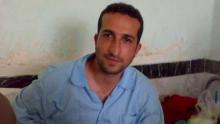
Last fall on God's Politics, we ran a few posts on the plight of Youcef Nadarkhani, a Muslim convert to Christianity who was arrested, charged with apostasy, tried, convicted and sentenced to death in Iran in 2010. We asked for continued prayer for the pastor and his family, and for people of conscience to speak out on his behalf.
Fast-forward five months...
As I was browsing through Facebook last night, I noticed a post on my news feed with the photo of a blindfolded man standing next to the executioner's noose and a headline that read, "Youcef Nadarkhani Executed."
My heart stopped for a moment. Please, no, I thought. And the guilt began to flood in: How could I have dropped the ball? If we had continued to sound the alarm on his behalf, would he have been hanged? Could we have helped save him if we'd done more?
I quickly went to Google to look for news reports of Nadarkhani's execution, reportedly on March 3. But I couldn't find any. Nothing on CNN, BBC, Al-Jazeera, NPR.
After searching for a while, I found a post by the American Center for Law and Justice that confirmed what had become my hope: Reports of Nadarkhani's execution were false.
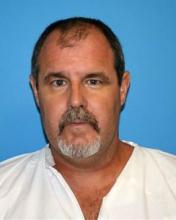
Tony Rackauckas, Orange County District Attorney, held a press conference to announce his intent to seek the death penalty for Scott Dekraai, who killed his ex-wife and seven others at Salon Meritage in Seal Beach on Oct. 12.
“There are some cases that are so depraved, so callous, so malignant that there is only one punishment that might have any chance of fitting the crime," said Rackauckas. “When a person, in a case like this, goes on a rampage and kills innocent people in an indiscriminate bloody massacre, I will of course seek the death penalty.”
He added, “This is the only way our society can get anything approaching justice for the victims, their families, the town of Seal Beach, and the larger community.”
If justice means putting Dekraai on a gurney and executing him, the victims, their families and everyone else hoping for that outcome should face the cold hard fact that they are in for a long wait.
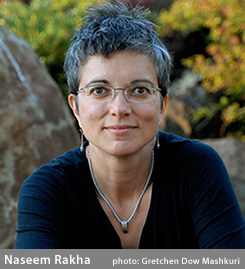
Naseem Rakha, author of the 2009 novel The Crying Tree sees justice differently. Rakha, an award-winning journalist whose work has been featured on National Public Radio and elsewhere, has covered two death penalty cases in Oregon -- the only two in that state's history -- and has spent considerable time exploring the deeper story behind capital punishment, retributive justice and forgiveness.
"What I learned from talking to these victims is that there is a place, not called closure, not called moving on, but there is a place of empowerment," Rakha said in a recent interview with God's Politics. "Crime strips people of power, and there's nothing that the justice system or really even churches can give to you to replace that power. It is an act of wanting to sit down and meet with the person who strips that power from you that has transformed people's lives and gotten them to a point where they can forgive the act, because they see the perpetrator no longer as a monster, but as a human that has made a terrible mistake."
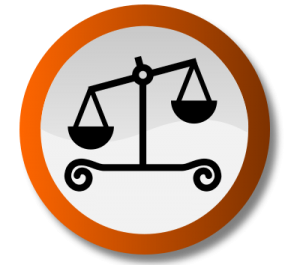
By the time someone figured out what happened, the deadline to appeal the denial of his post-conviction appeal had passed. So far, the state of Alabama has successfully argued that despite the mail room debacle, Maples should have been aware -- through his local counsel -- that the clock was ticking and that he just blew it.
Courts have struggled for years over the question of who should bear the penalty for a lawyer's mistakes or incompetence and the Maples case represents an extreme example of the problem of imputing the mistakes of a lawyer to the client.
"It ALL began when they come took me from my home
And put me on Death Row,
a crime for which I am totally innocent, you know."
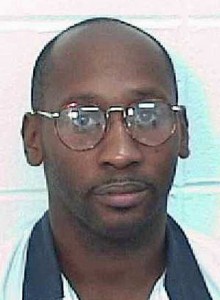 Davis is set to die on Wednesday for the killing of off-duty Savannah officer Mark MacPhail, who was slain while rushing to help a homeless man being attacked. It is the fourth time in four years his execution has been scheduled by Georgia officials...The decision appeared to leave Davis with little chance of avoiding the execution date. Defense attorney Jason Ewart has said that the pardons board was likely Davis' last option.
Davis is set to die on Wednesday for the killing of off-duty Savannah officer Mark MacPhail, who was slain while rushing to help a homeless man being attacked. It is the fourth time in four years his execution has been scheduled by Georgia officials...The decision appeared to leave Davis with little chance of avoiding the execution date. Defense attorney Jason Ewart has said that the pardons board was likely Davis' last option.
So what makes the Troy Davis case stand out from most other death penalty cases?
Serious doubt.
Not about whether the death penalty is the appropriate punishment for Davis or has been correctly applied.
The doubt raised in Davis' case is whether he committed the crime at all. And those questions about his guilt have prompted hundreds of thousands of people to raise their voices in opposition to his execution, most recently former FBI Director William Sessions who, in an op-ed in the Atlanta Journal-Constitution Friday, called on the Georgia Board of Pardons and Paroles to commute Davis' sentence to life in prison.
In my daily prayer book, the morning antiphon for today said: "The Lord chose these holy men for their unfeigned love
It is Death Penalty Awareness Week, and supporters of human rights across the country have turned their attention to a uniquely complicated injustice -- the implementation of capital punishment in the United States.
